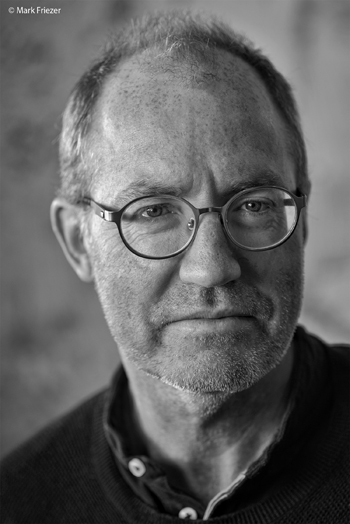Historian and writer Paul Ham has an extraordinary literary opus including Kokoda, 1914 and Hiroshima Nagasaki. His current work, New Jerusalem hit bookstores on 29 October 2018. Paul found some time, in between preparing for his up-coming promotional tour of Australia, and bonding with his new-born daughter, to talk to Glam Adelaide from his home in Paris.
New Jerusalem is a move away from Ham’s usual subject-matter of 20th century political conflict. It tells of the Melchiorites in 1534: an Anabaptist sect, who, under the leadership of John of Leiden, seized the German town of Munster, turning it into a theocracy and renaming it New Jerusalem. What lead him to this unusual topic?
I ask myself the same question! In the last few decades conflict in the name of religion has made quite a powerful return. For 300 years, war has been fought over real-estate, colonial empires, resources, or political ideology. Now we see war waged in the name of gods and underneath the conflicts now is a strong current of extreme religious belief.
I also read a lot of religious history, and the events that took place in Munster triggered the Hundred Years War which was the first really brutal conflict between extreme Protestants and the mainstream faiths. It captivated my imagination and I wanted to look into it further. I thought it was quite relevant to our times. The epilogue brings into focus some of those issues.
But are wars ever really just fought over religious beliefs? Aren’t there economic and political drivers often dressed up as religion?
I believe, certainly, it’s a confluence of events which leads to conflict: for example, the protectionism which lead to Japanese belligerence in WW 2. But what we’re seeing now [which is unusual] is rich countries waging war in the name of god. My point is that religion has played a critical role in conflict through the centuries. And it’s easy for us in our secular world to say that the state was simply using religion as a way to inflame conflict, but that just isn’t borne out by recent research.
Certainly, the Melchiorites saw their beliefs as a path to salvation.
In Germany at the time, there was extreme division between rich and poor. The vast majority of people lived in grinding poverty. There was a famine in north Western Europe in the late 1520s which was driving people to plead with god for deliverance from their hellish circumstances. With the arrival of the reformation in 1519, for the first time they were able to read the Bible in their local tongue and this opened up their eyes to the message of Christ. We can’t under-estimate the impact this had on people who were living as virtual slaves. It opened their eyes to a different world. And what my book is trying to do is to reimagine that world: how extreme sects like these Melchiorite Anabaptists formed out of the hope that the Bible delivered, extreme economic circumstance, and the oppression of the established church.
Interestingly, the Melchiorites gave more autonomy to women than had been traditional in the church.
Certainly, the Melchiorites, and the Anabaptists in general, did give roles to women, although minor ones. But in so far as some women interpreted their role, they were able to perform as teachers and as carers. They had a greater voice at the time than any other religious stream. And they were encouraged to pray directly to God. For many women in the Anabaptist movement this was the first time that they had been able to develop, in their own minds, a direct relationship to God without the intercession of priests and friars. These women felt for the first time “God is talking to ME. Christ is talking to ME.” This was an extraordinary revelation for so many women.
So how did you go about the gargantuan task of researching something like this?
I’ve always believed with my books that I need to get my hands dirty: go on the Kokoda Track, go to Borneo, live in Hiroshima, and so forth. So, I spent a couple of months in Munster and spoke to all of the German experts. I had an interpreter and a translator. Much of the German is archaic, which most German people can’t even speak, so I had a couple of very bright PhD students specialising in the theology of the time, and they were able to translate original documents. So, in my book, all the direct quotes are from genuine documents. I’ve tried to tell the story through the eyes of the participants.
You also made the decision to quote the Bible directly as the sect believe in the absolute truth of it.
In a way you could make some comparison with the extreme interpretation of the Quran by ISIS and other movements today. The Anabaptists took certain parts of the Bible, such as Revelations and the Book of Daniel, literally. The eschatology and millennial fervour was endemic amongst the Lutherans. Luther himself believed they were on the cusp of end-times.
Would he call the Melchiorites a cult, in the way that we understand that word today?
The radical reformation, of which the Anabaptists were a part, was an extension rather than an aberration. Their extreme aim was to really apply Christ’s fundamental message to the world. They took the notion of compassion and charity to its logical conclusion and introduced communal sharing. In Munster particularly, one had to care for the poor by donating to a communal pool. The Anabaptists in Munster really created a Christian theocracy. The judges and John of Leiden would meet every morning with the Bible, the only legal book allowed. They would directly apply the Bible to the living case before them.
Sadly, their fundamentalist interpretation eventually became problematic for the women of Munster, when “go forth and multiply” was brought to bear on the three-to-one ration of women to men, resulting in a polygamous regime. This crushed women’s hopes at the time of having a new place in the church.
Your enthusiasm and energy are infectious.
I’ve got a contract to write two more books. But having written about eight books on 20th century political and war history, I feel that I’ve paid my dues to that subject. Much as I find it a huge challenge and it’s always fascinated me, I’d just like to write in other forms. I’d love to write an historical novel!
Interviewed by Tracey Korsten
Paul Ham Speaking Tour
Where: Cove Civic Centre, Hallett Cove
When: 8 November 2018
Cost: Free
More information: City of Marion website
Paul Ham’s new book, New Jerusalem was released on 29 October 2018 through Penguin Random House Australia and is available now.






















